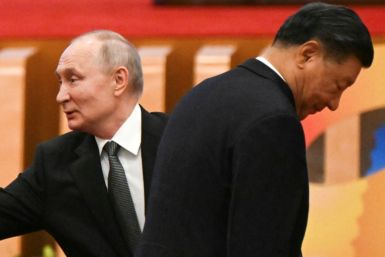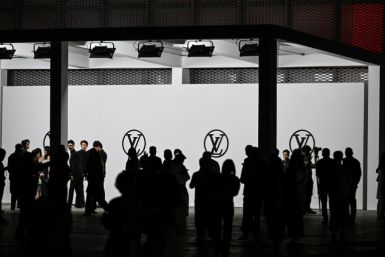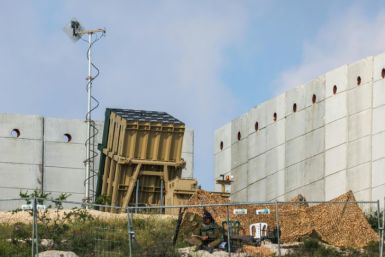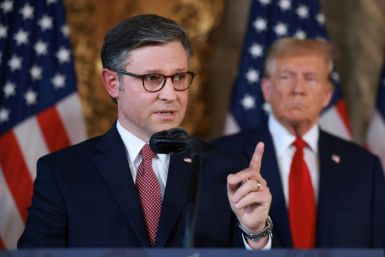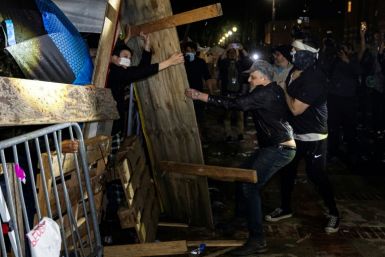US And EU Appeal To Stop Fighting In Ukraine; Putin Tells Kiev To Allow Soldiers To Surrender To Rebels
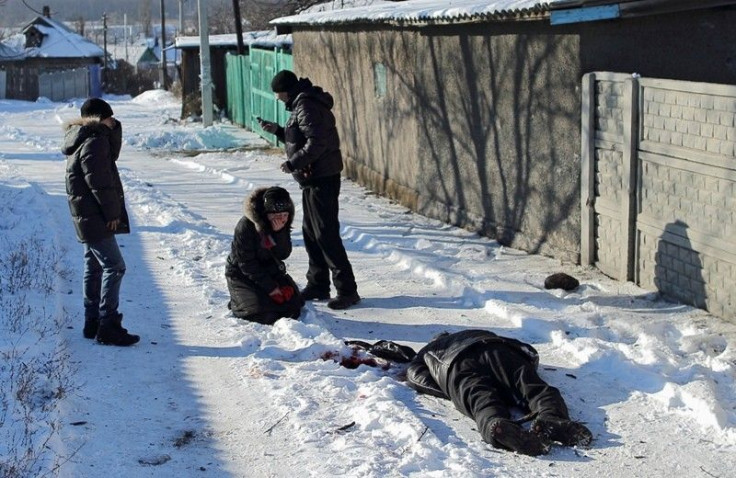
The European Union has pleaded for an end to the shooting in Ukraine following the two-day old ceasefire agreement. Despite the deal forged in Minsk, shooting has resumed in eastern Ukraine and prompted fears of the truce collapsing.
The EU has imposed new sanctions on Russia, which the bloc has accused of supporting the rebels fighting Ukraine government forces. The Russian government has repeatedly denied any involvement in the Ukraine conflict. Moscow has promised to give an “appropriate response” to the new EU sanctions, reports AFP.
Pro-Russian separatists and Ukraine officials have accused each other of instigating the ongoing battle as both sides have not pulled out from the frontline in eastern Ukraine. The withdrawal of weapons was supposed to be in effect on Feb. 16 under the terms of the ceasefire agreement. However, a senior Ukrainian official, who spoke to AFP on the condition of anonymity, said no such action was done.
The rebels have managed to seize the strategic Debaltseve railway hub despite the ceasefire agreement. They closed in on government soldiers trapped in the ruins with dwindling supplies.
The U.S. has called on Russia and the rebels to stop attacks in eastern Ukraine and respect the terms of the ceasefire agreement. European Commission spokesperson Maja Kocijancic said it was imperative to fully implement the deal. A previous agreement in Sept. 2014 was stalled within days and eventually collapsed.
The Guardian reports that Russian President Vladimir Putin told Ukraine to allow soldiers to surrender to pro-Russian separatists. “I hope that the responsible figures in the Ukrainian leadership will not hinder soldiers in the army from putting down their weapons,” said Mr Putin.
The U.S. and Europe have dismissed the Russian president’s denials of any involvement in the Ukraine conflict. Western leaders have noted of similar statements before the annexation of Crimea when Mr Putin finally admitted to ordering Russian troops to enter the territory.
When the ceasefire agreement was being brokered in Minsk on Feb. 12, Ukrainian President Petro Poroshenko had waived the passports of Russian soldiers that were caught or killed in Ukraine, reports Forbes. The presence of Russian troops in eastern Ukraine may have confirmed the suspicions of the U.S. and EU of Moscow’s involvement.
According to the EU’s Official Journal, Russian deputy defence minister Anatoly Antonov has been added to the blacklist for his involvement in supporting the deployment of Russian soldiers in Ukraine. First deputy defence minister Arkady Bakhin was also included in the blacklist for the same reason.
The EU has also named Andrei Kartapalov, a senior Russian military commander, for helping in developing the military campaign of Russian troops in Ukraine. The text in the EU gazette was signed by Federica Mogherini, the foreign relations chief of the EU. The Russian foreign ministry reacted to the new EU sanctions in a statement and warned of an “appropriate response.”
To report problems or leave feedback on this article, contact: r.su@ibtimes.com.au


